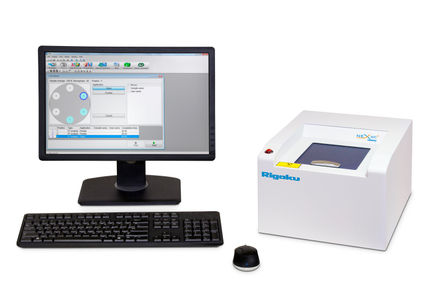To use all functions of this page, please activate cookies in your browser.
my.chemeurope.com
With an accout for my.chemeurope.com you can always see everything at a glance – and you can configure your own website and individual newsletter.
- My watch list
- My saved searches
- My saved topics
- My newsletter
Exotic hadron
Product highlightExotic hadrons are subatomic particles made of quarks (and possibly gluons), but which do not fit into the usual schema of hadrons. While bound by the strong interaction they are not predicted by the simple quark model. That is, exotic hadrons do not have the same quark content as ordinary hadrons: exotic baryons have more than just the three quarks of ordinary baryons and exotic mesons do not have one quark and one antiquark like ordinary mesons. Exotic hadrons can be searched for by looking for particles with quantum numbers forbidden to ordinary hadrons. Experimental signatures for exotic hadrons have been seen recently but remain a topic of controversy in particle physics. HistoryWhen the quark model was first postulated by Murray Gell-Mann and others in the 1960's it was to organize the states then in existence in a meanful way. As Quantum Chromodynamics (QCD) developed over the next decade, however, it became apparent that there was no fundamental reason why only 3-quark and quark-antiquark combinations should exist. In addition it seemed that gluons, the force carrying particles of the strong interaction, should also form bound states by themselves (glueballs) and with quarks (hybrid hadrons). Nevertheless, several decades have passed without conclusive evidence of an exotic hadron. CandidatesThere are several exotic hadron candidates:
Categories: Hadrons | Subatomic particles |
||||||||||||
| This article is licensed under the GNU Free Documentation License. It uses material from the Wikipedia article "Exotic_hadron". A list of authors is available in Wikipedia. | ||||||||||||







